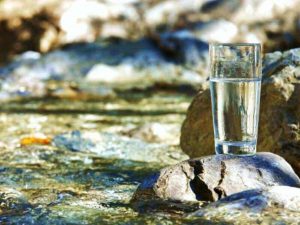When it comes to ensuring your home has clean and safe drinking water, a reliable water filtration system can make all the difference. Most users will recognise the benefits of using a water filter and how it can play a crucial role in providing clean, safe drinking water by removing various contaminants that may be present in both municipal and natural water sources. Whether for home use or outdoor adventures, choosing the right filter is essential to meet your water purification needs. Let’s explore what are the different types of water filtration systems available:

Types of Water Filters
Activated Carbon Filters
- How They Work: Activated carbon filters work by using a porous material that traps contaminants as water passes through. The carbon has a large surface area, which allows it to absorb organic compounds and chlorine effectively.
- Contaminants Removed: Chlorine, pesticides, herbicides, volatile organic compounds (VOCs), and unpleasant tastes or odors.
- Best Use Cases: Ideal for improving the taste and smell of tap water in a home filter system. Often used in countertop or under-sink filters and pitcher filters.
- Everything you need to know on Activated Carbon filters.
Reverse Osmosis (RO) Filters
- How They Work: Reverse osmosis filters use a semipermeable membrane to remove impurities. Water is forced through the membrane, leaving contaminants behind in the filter.
- Contaminants Removed: Heavy metals (like lead, arsenic, and mercury), fluoride, nitrates, and bacteria. RO filtration can remove up to 99% of impurities, making it one of the most effective filtration methods.
- Best Use Cases: Excellent for households seeking thorough filtration. Often used in home water filtration systems for drinking and cooking water.
- Everything you need to know on Reverse Osmosis systems.
Ultraviolet (UV) Filters
- How They Work: UV filters use ultraviolet light to kill bacteria, viruses, and other microorganisms by disrupting their DNA. This is a chemical-free process that is particularly effective for biological contaminants.
- Contaminants Removed: Bacteria, viruses, and protozoa.
- Best Use Cases: Ideal for treating water sources that are biologically unsafe, such as untreated well water. Can be used as an additional layer in whole house water filter systems.
- Everything you need to know on UV filter systems.
Ceramic Filters
- How They Work: Ceramic filters have tiny pores that physically block bacteria and other microorganisms. Some ceramic filters also contain a layer of silver to further inhibit bacterial growth.
- Contaminants Removed: Bacteria, sediment, and some protozoa.
- Best Use Cases: Commonly used in household filtration systems and for portable water filters. They’re great for situations where biological contamination is a concern.
- Everything you need to know on Ceramic Filters.
Distillation Systems
- How They Work: Distillers work by heating water to a boil, capturing the steam, and condensing it back into liquid. Contaminants with higher boiling points are left behind.
- Contaminants Removed: Heavy metals, minerals, and most biological contaminants.
- Best Use Cases: Typically used in home filter systems when the primary concern is heavy metals or mineral content. It’s a slow process, so it’s best for drinking and cooking water rather than large volumes.
- Everything you need to know on Ceramic filters,
Sediment Filters
- How They Work: Sediment filters trap larger particles like sand, dirt, and rust through a mechanical filtration process.
- Contaminants Removed: Sediment, sand, silt, and rust.
- Best Use Cases: Often used as a pre-filter in both home and whole house water filtration systems. Helps to protect other filters from clogging and extend their life.
- Everything you need to know on Ceramic Filter systems.
Ion Exchange Filters
- How They Work: Ion exchange filters use resin beads that attract unwanted ions (such as calcium and magnesium, which cause hardness) and replace them with more desirable ions (like sodium or potassium).
- Contaminants Removed: Hard water minerals, like calcium and magnesium.
- Best Use Cases: Often used in household water purification systems to soften water for better cleaning and appliance efficiency.
- Everything you need to know on Ceramic Filter systems.
Conclusion
Thankfully there is a range of various solution to get rid of what we don’t want to be drinking. For a comprehensive and in-depth dive into each of those filtration system follow the last bullet point.